Hanoi Old Quarter: Streets to Remember
Get lost in the Old Quarter jungle? It's fine; as locals, we do too.
You might be dazzled by the chaos of Hanoi's Old Quarter but make sure you find your way to these below mentioned streets to make your trip even more memorable.
Gia Ngu Street
Gia Ngu Street, often referred to affectionately as “underwear street,” is an historic street situated in the bustling Old Quarter of Hanoi. It connects Hang Dao and Hang Be streets and retains the lively atmosphere typical of Hanoi, with motorcycles frequently parked on sidewalks. What sets this street apart is its specialty merchandise, primarily including underwear, socks, and children's clothing. Visitors can expect a variety of styles and colors at reasonable prices, with most items priced below $5, and a reputation for fairly good quality. However, it is important to note that the sizes offered are tailored predominantly for Vietnamese consumers.
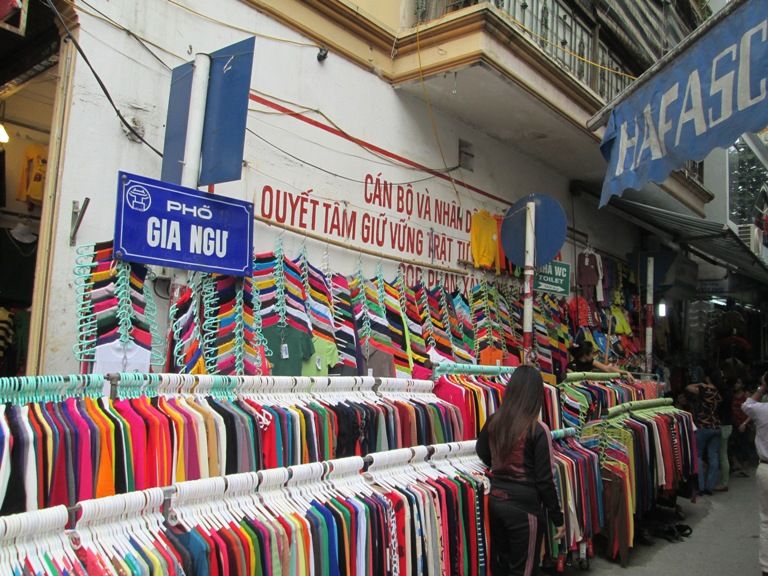 Gia Ngu Street - Photo: Mytour
Gia Ngu Street - Photo: Mytour
Lan Ong Street
Lan Ong Street is another charming thoroughfare in the Old Quarter. Named after a famous physician from the past, the street translates to “Lazy Old Man” in Vietnamese. Lan Ong is renowned for its traditional herbal medicine shops, and the air is often filled with the distinct aroma of various herbs, which some may find pleasant while others may consider it overpowering. The street intersects with Thuoc Bac, Hang Can, Hang Ngang, Luong Ngoc Quyen, Ta Hien, Dao Duy Tu, and Ma May streets, making it part of a network of culturally rich paths.
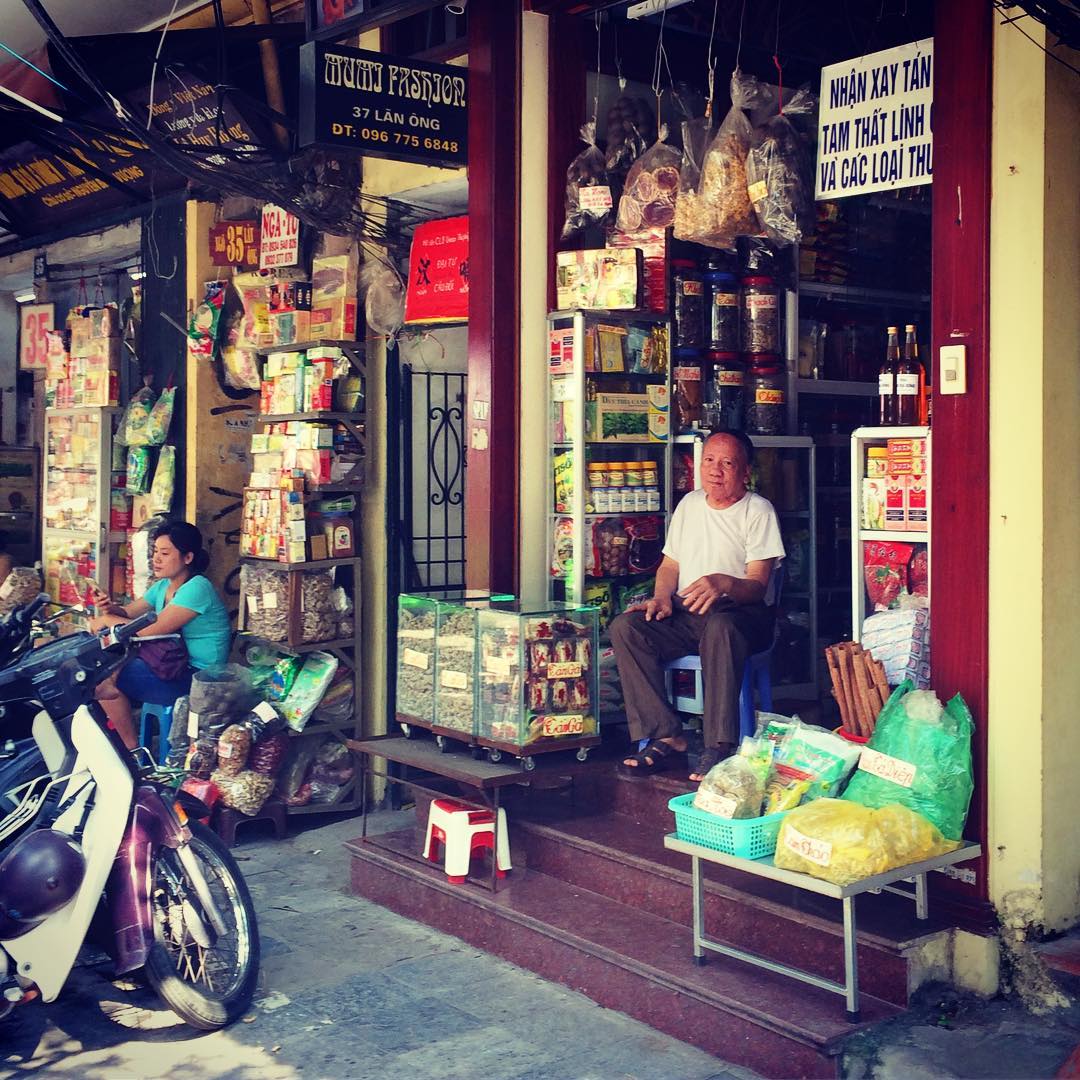 Lan Ong Street - Photo: @lauraslaney
Lan Ong Street - Photo: @lauraslaney
Hang Quat Street
Hang Quat, or Fan-Making Street, is a brief stretch of around 200 meters that links Luong Van Can Street to Hang Non Street. Historically known as Rue des Eventails during the French colonial era, it was renamed Hang Quat Street in 1945. Previously home to numerous fan makers crafting items from bamboo, paper, and palm leaves, the street has since shifted focus towards selling worship items used in traditional rituals and a variety of handcrafted wooden goods. Visitors interested in unique souvenirs, like custom wooden seals that can create personal imprints, will find this a worthwhile stop.
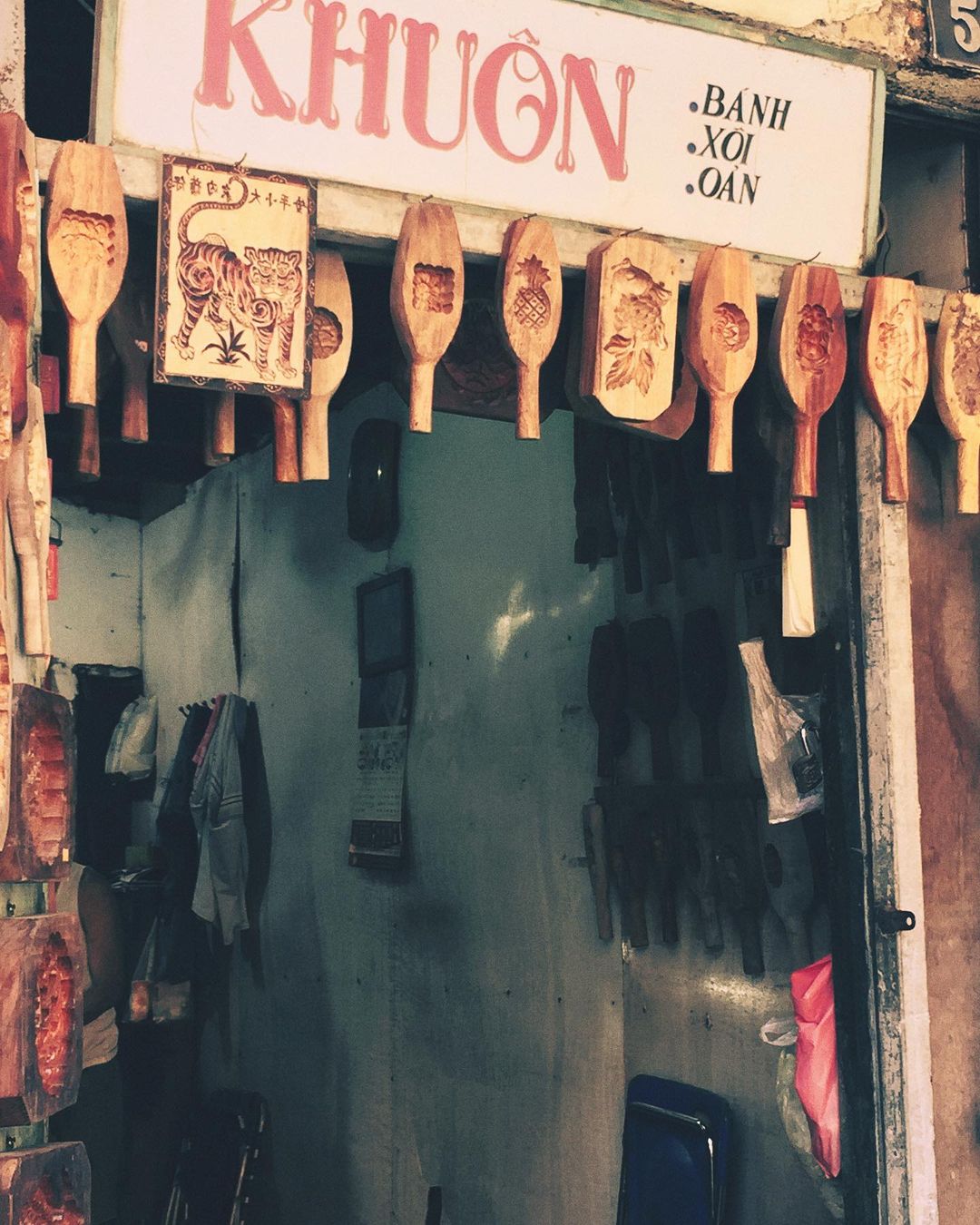 Hang Quat Street - Photo: @xuantienne
Hang Quat Street - Photo: @xuantienne
Hang Giay Street
Spanning 250 meters, Hang Giay Street connects Hang Buom and Luong Ngoc Quyen Streets. Known as Lataste during French occupancy, the name “Giay” means “shoes” in Vietnamese. There was a time when cobblers from the Cham village would sell leather footwear here, but this has changed drastically as many older buildings have been replaced with two-story structures predominantly rented by Chinese restaurateurs. Nevertheless, locals still operate small businesses producing incense and candies, both of which have become quite popular.
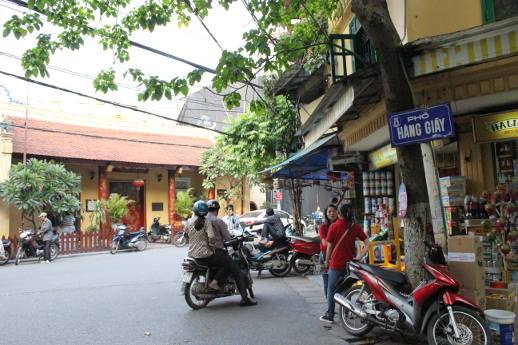 Hang Giay Street - Photo: Vanhien
Hang Giay Street - Photo: Vanhien
Hoan Kiem Street
Hoan Kiem Street is a well-known destination in Hanoi, thanks to its prime location adjacent to Hoan Kiem Lake. Remarkably short at under 80 meters, it connects Cau Go Street and Dinh Tien Hoang Street. Despite its diminutive size, the street boasts several small eateries specializing in Nom Bo Kho, a beloved dish made from sweet and sour grated salad topped with dried beef. Locals and visitors alike praise the quality of Nom Bo Kho found here, establishing Hoan Kiem Street as a gastronomic highlight.
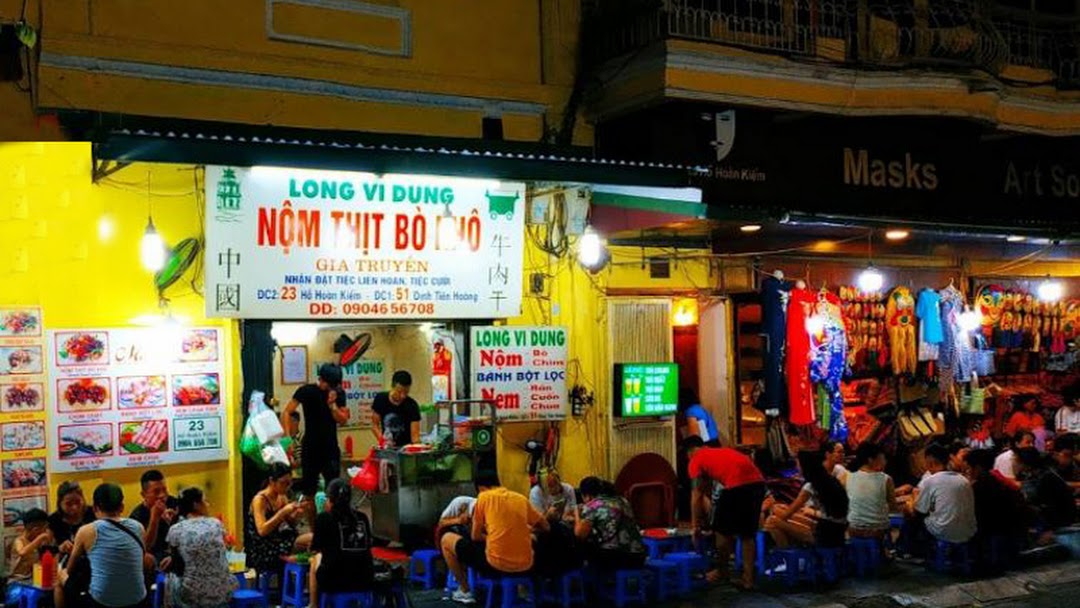 Hoan Kiem Street - Photo: @longvidung
Hoan Kiem Street - Photo: @longvidung
Related Readings:
Hanoi Travel Guide
Hanoi Most Popular Attractions

Best Things To Do In Moc Chau
Moc Chau Town is among the top-rated tourist destinations in northern Vietnam brimming with ultramodern and natural sightseeing attractions.
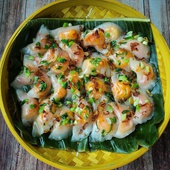
Vietnamese Snacks Among Best In The World
Vietnamese cuisine has long been known as among the most abundant and delicious cuisines in the world.
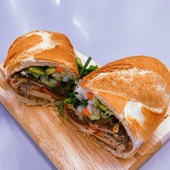
The Most Expensive "Banh Mi" In Ho Chi Minh City That Is Worth A Try
Long queues of Saigoneses, tourists, and shippers in front of the "banh mi" Huynh Hoa shop have long become a familiar scene every afternoon.








